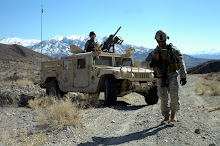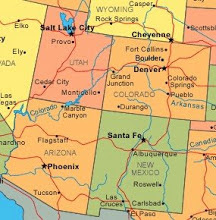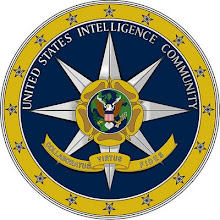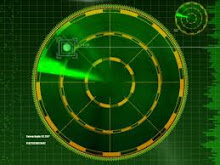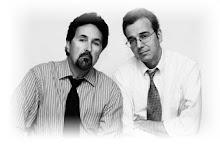By Steve Hammons
The term “anomalous cognition” has come to mean something similar to what has often been called the “sixth sense.” These concepts are also linked with names for this phenomena such as extrasensory perception (ESP) and remote viewing.
However, is it true that certain kinds of perception are actually “anomalous,” that is, unusual or out of the ordinary?
It may be that the sixth sense is actually a very natural, normal and common kind of perception that we all experience on a regular basis. We may not recognize it as such because we filter those perceptions through our conscious and logical thinking brain.
Or, maybe we just consider these perceptions as hunches, gut feelings, instincts or intuition that we may or may not pay much attention to.
It might be more accurate and constructive to call this kind of perception “alternative cognition” or “complementary cognition.” This is similar to ideas of alternative medicine and complementary medicine.
NORMAL AND NATURAL
We might think of alternative cognition or complementary cognition as just another perceptual resource to go along with our other five senses of sight, hearing, touch, taste and smell as well as our emotions, feelings, dreams, imaginations and thinking brain.
In fact, maybe we will discover that there are more than these modes of perception. Maybe we have the ability to perceive in ways that can be further identified and specified.
There are also joint perceptions that involve using more than one sense or perceptual resource simultaneously. Integrating our sixth sense with the other five and other inner experiences may also be helpful, as well as very natural and normal.
Complementary cognition is probably something all humans, and probably many animals, possess as a natural part of our awareness.
However, this does not mean that all of us utilize this kind of perception in equal measure.
For example, remote viewing refers to some specific methods developed by the U.S. military and intelligence communities in Project STAR GATE during the 1970s, ‘80s and ‘90s. People were selected to be remote viewers in these efforts because they were believed to have better than average or quite good abilities in this area.
These abilities were then scientifically tested, verified, measured and explored by Project STAR GATE personnel.
Are these skills based on elements like personal experiences, training and practice, genetics or psychological traits? All of these factors, and maybe more, probably play a part in the abilities of a particular person.
In addition, the purpose or importance of the alternative or complementary cognition experience might be an important factor. Is it being used as part of an important secret mission, for personal safety and survival, to find a missing child, to catch a dangerous criminal?
Would these situations somehow contribute to the availability or accuracy of complementary cognition experiences compared to a purpose that is less important?
LEADING-EDGE RESOURCE
As we continue to learn more about our sixth sense, ESP, remote viewing, anomalous cognition, alternative/complementary cognition or whatever we might choose to call it, we will probably find answers to these questions.
Scientific research during the Project STAR GATE years resulted in large amounts of useful data that continue to be very helpful in our understanding of this aspect of human consciousness.
In addition to the scientific exploration and measurement of this human ability, it was applied to operational activities involved with U.S. national security, often with significantly successful results.
In fact, a Navy SEAL officer suggested in a research paper for his studies at the Marine Corps War College that remote viewing can be an example of what he called “transcendent warfare.” He suggested that using state-of-the-art and leading-edge emerging knowledge about human consciousness can be an important part of U.S. national security activities.
Subsequent concepts that built on the SEAL officer’s idea of transcendent warfare included the term “transcendent power” which is complementary to diplomatic and military soft power, hard power and what has been called smart power.
Taking the transcendent power idea further, we might discover that it and complementary cognition can be applied to a wide range of efforts and goals including economic prosperity, scientific progress, medical discoveries, human development, international peace operations, resolution of social problems, natural resources conservation and many other important current challenges.
When we begin to understand that alternative and complementary cognition is a natural part being human, we may find that we can make accelerated progress on many levels.
Monday, July 13, 2009
ESP, remote viewing actually ‘complementary cognition?’
Tuesday, July 7, 2009
Another view of UFO disclosure: Look within
By Steve Hammons
We seem to hear and read quite a bit about "disclosure" in the media nowadays in reference to unconventional and unidentified flying objects (UFOs).
Some people say we must lobby for the release of government-held information so that the American and international public can understand what, if anything, is going on. Are there important new discoveries? Are there threats to the human race? How might the government be handling unconventional scenarios?
Actually, quite a bit of disclosure has already taken place. By doing a reasonable amount of research, any average person can get a very good feel for what may be going on.
Sometimes, things are spelled out quite clearly. Sometimes we have to read between the lines.
GRASSROOTS UNDERSTANDING
There seems to be an assumption that somewhere within the secret groups of, or associated with the U.S. government, there exists a comprehensive understanding of the overall situation when it comes to UFOs, contact with other worlds or dimensions and various kinds of mysterious phenomena.
Although there undoubtedly is classified information that could shed light on some of these topics, specific facts about UFO crashes and other activities may not provide a truly insightful understanding of the larger picture.
In fact, we may not see the forest for the trees. Or, layers of deception could surround apparent facts and situations.
What makes us believe that politicians and those from the military, intelligence and scientific fields have the necessary perspectives to fully understand the real whole situation? Some may and some may not.
Undoubtedly, many or most have tried to do their duty to the best of their ability. Even so, the probable compartmentalization found within secret programs often prevents people – even people on the "inside" – from seeing the bigger and deeper realities involved.
One view is that when more understanding about unconventional situations emerges, it may be through a "grassroots" method. That is, it might not come from the top down – from Washington, D.C. – down to the rest of us. New understanding may come from average people who, through one way or another, make discoveries within themselves about what may be going on.
LARGER ECOSYSTEM
Some researchers have indicated that many unconventional phenomena may be part of our natural environment, part of Nature, part of an ecosystem that is more complex than we may have imagined.
Within this larger ecosystem, humans may not be the most technologically, intellectually or spiritually advanced species involved.
However, the human race may hold some key to ongoing developments in the next stages of an unfolding story. What is our role? Will that role evolve? Are we being oriented and acclimated about this new role our species plays in the larger environment?
Another element to consider is that our situation with regard to unconventional phenomena may be a mystery by nature. That is, even extraterrestrial and/or extra-dimensional visitors may not understand the whole story, let alone U.S. government officials.
This universe or multiverse of ours may be an ever-unfolding mystery. There may be no final answers. There may be no secret government files that will explain it all.
HUMAN CONSCIOUSNESS
Through classified investigations, we may have learned about things like UFOs and exotic physics. These might have led to mind-boggling spacecraft and advanced technologies that remain secret. No doubt, these could be interesting and potentially very helpful.
But is that really where the important answers lie?
Maybe we should also look to the human heart, human kindness, human passion and compassion, human creativity and beauty in music, the arts and other endeavors. Maybe we should look to human decency, to our moral compasses and to human consciousness.
Research into human consciousness, including activities of the U.S. government, has yielded significant results that we have heard plenty about: ESP, remote viewing and similar phenomena.
Maybe this type of research is a good jumping off point for valuable discoveries. Maybe this is the path that will lead us through the mysteries of unconventional phenomena of many kinds, including the UFO phenomena.
And what might we find on that path? Possibly deeper, stranger and even more wonderful mysteries.
































































